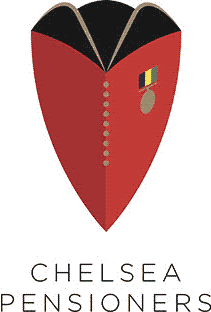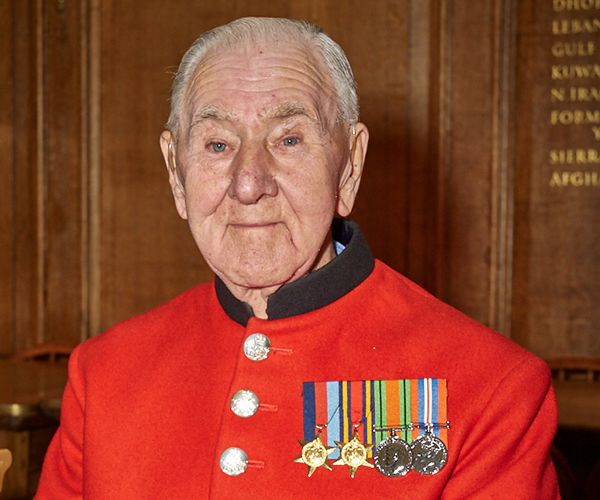Inspiring stories of survival to mark 80 years since the Blitz
9th October 2020
Eighty years ago, Londoners were facing a crisis. A sustained bombing attack on the capital by the German army began on 7 September 1940 and continued until 11 May 1941. It became known as the Blitz – the German word for lightening. During the Blitz, almost 30,000 civilians were killed, 70,000 buildings were completely demolished and another 1.7 million were damaged.
Bombings and bravery at the Royal Hospital
Although some of the Chelsea Pensioners were evacuated during the war, the Royal Hospital didn’t escape the attacks. Our War Diary records bombs falling all around the surrounding area as well as on the site itself. The worst damage came on 16 April, 1941 when the Hospital’s Infirmary was hit:
About 11.18pm there was an extremely heavy explosion, without previous warning… Clouds of dust filled the air, debris fell within a 300-foot radius of the Infirmary. The East Wing was completely demolished, a large crater occupying the site. The remainder of the Infirmary was badly damaged, the roof being removed… Windows were broken all over the Royal Hospital. Those in the bombed wing were killed outright.
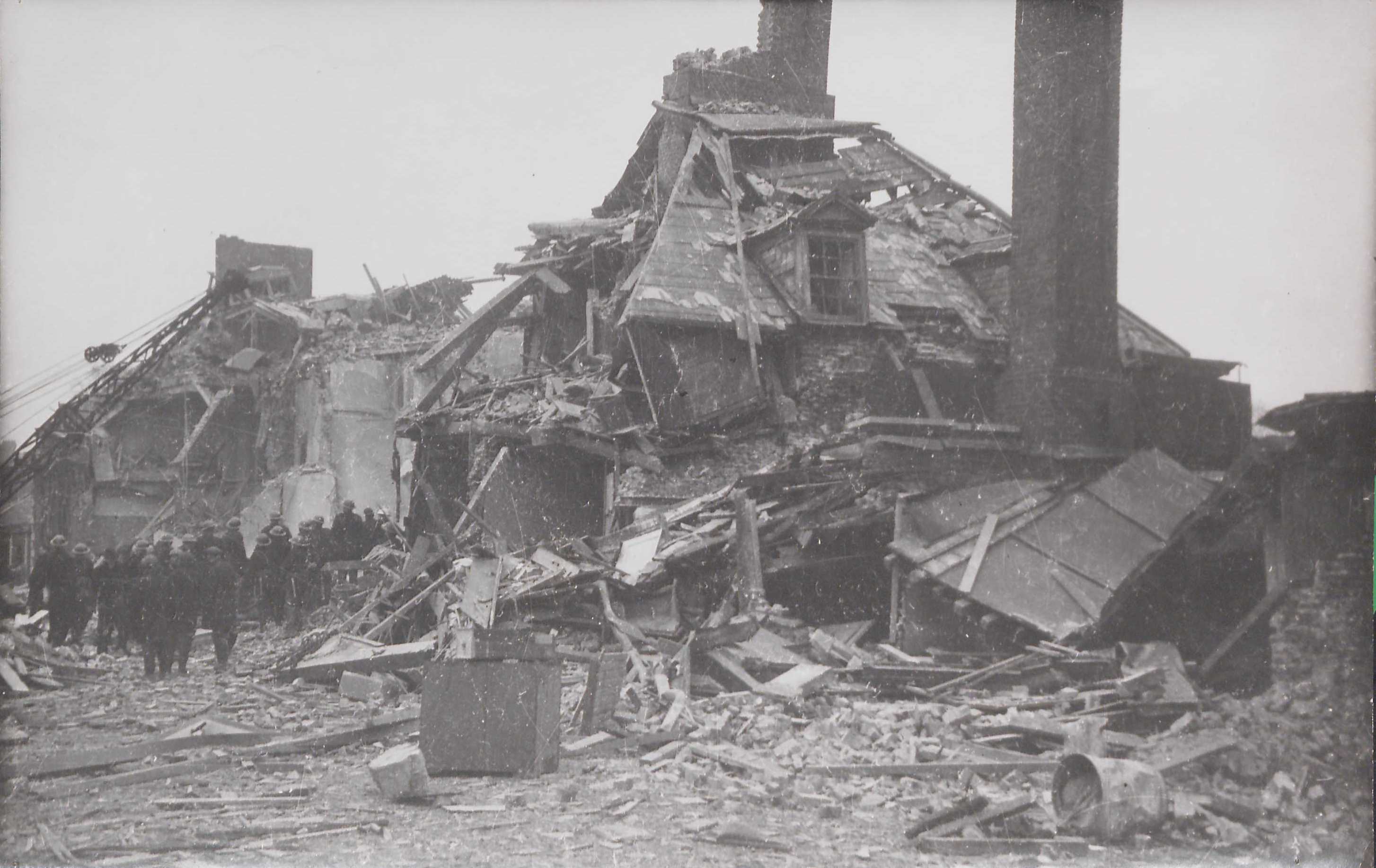
Four nurses, the Wardmaster and eight Chelsea Pensioners were killed, while another 37 Pensioners were injured. One of the nurses had a narrow escape:
Sister May left the duty room and had just emerged onto the Infirmary colonnade when the bomb fell. She was blown as far as the middle of the colonnade and suffered a broken thigh and facial injuries, probably from falling masonry. She informed various rescuers that she was all right and to leave her and attend to the Pensioners.
A close shave for East End Pensioner Mary
A number of today’s Chelsea Pensioners have vivid memories of the Blitz.
Mary, who grew up in the East End was at teenager at the time. Her mother was away fruit-picking and her younger siblings had been evacuated so just Mary and her sister were living in the family home, 41 Tarlin Street. Mary remembers returning to the street with a blanket over her arm after a night sheltering under the railway arches:
I was standing at the top of Tarlin Street, waiting for my auntie and the bombs were dropping. All of a sudden, one hit and all the terraced houses along there, the lot, went down – bang! The shock – there wasn’t a house standing. The tears were rolling down from my eyes and then I saw my sister right up the other end of the street. She’d just come back from her friend’s in Wapping. ‘Mary’ she said, and we ran towards each other – it was like a film!
Not only did Mary and her sister survive, but her sister’s wedding trousseau which had been stored in the cellar was dug out of the debris intact by kindly neighbours.
A horrific experience in Leadenhall Street
Helen, who went on to work at Bletchley Park, was just 14 when the Blitz started. As her parents were in South America, Helen was at boarding school in Bognor Regis, but would go to London to visit her aunt now and then. It was on one of these trips that Helen had a very traumatic experience:
My auntie was working in Leadenhall Street. I got there and the sirens started up ‘uhoo!’. Then the aeroplanes came over and bombed the street where I was walking. A bomb fell right into the building I was passing by and a man, poor lad, was chucked out of a window and he fell on top of me.
Helen remembers how she managed to extract her arm from under the body and alert the rescuers on the street:
The Red Cross and the Salvation Army were working all around me with people who were dead and dreadfully injured. The took care of me, dug me out and took me somewhere where they washed me, gave me clean clothes and took me to my auntie’s – and auntie and I had tea and went to the cinema!
A safe place and a survivor's bag
Other Pensioners recall near misses they experienced during those difficult years. One veteran remembers sleeping in a school most nights with his dad, whilst his mother and sisters were evacuated. One night, his father was so sure their time was up that he said “Cheerio son” as they heard a V1 rocket hurtling towards them.
Roy was also a schoolboy when he lived through “one of the most frightening nights of my life” in 1941:
Gran, Mum and I were in our usual ‘safe’ spot under the stairs when the sirens sounded. Grandad Fred was in the kitchen making us all a cup of cocoa, when all of a sudden came this shattering, terrifying explosion. The three of us were shaking with terror, shouting our heads off for help, trapped in noise and utter darkness. We could hear falling debris in the kitchen outside but no response to our calls to Grandad.
Then, in a flash, I suddenly remembered my ‘survivor bag’, as I called it. Amongst my comic books and other bits I might have had to rely on was my three-light torch – green, red and white. I found it and switched it on. In this new illumination I saw Mum and Gran – two ghost-like figures covered in dust and dirt. I must have looked the same.
After what seemed like hours, we heard someone call. There were violent tuggings at our collapsed door and a great beam of light shone upon us and we saw friendly faces giving us words of comfort. As we were helped out we could see how much damage had been caused to our dear little home. Windows caved in, beds hanging through the ceiling, water dripping down and the sinister sound of hissing gas.
Roy, his mum and his gran were taken to the nearest hospital. Roy didn’t discover what had happened to his granddad until the following day:
Two senior doctors took us to one side to tell us the awful news that dearly beloved Granddad had been killed by the heavy plaster ceiling falling on him.
Tragedy and trauma
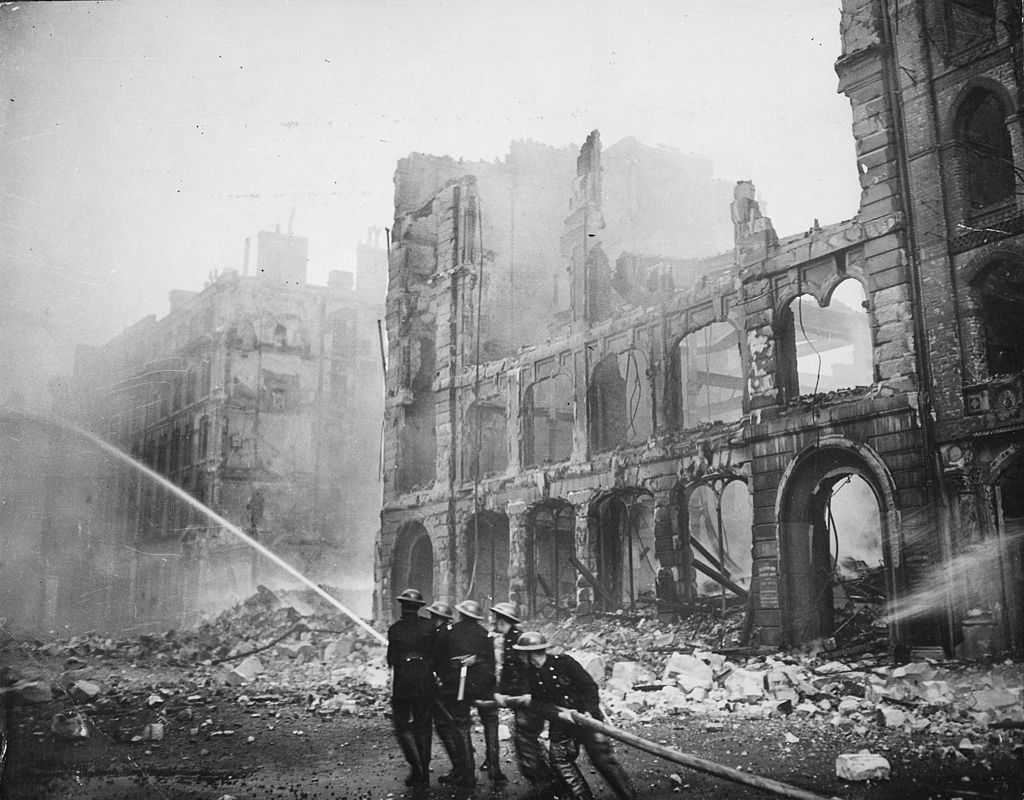
Roy’s family tragedy was echoed across London which Mary remembers as “just a mess of bricks and mortar”.
Helen recalls finding a little boy whose house had been bombed, looking for his parents:
I took him to the Salvation Army and they looked after him. He was only about five, poor little fellow. Whole families disappeared. Lost. There were terrible injuries from falling bricks and mortar.
Mary remembers a large family of neighbours losing their lives in the bomb that she and her sister survived:
There were about five houses on the other side of the street and a big family called the Sheridans lived in them. They all went down and everyone was dead.
The indomitable Blitz spirit
What shines through in the Pensioners’ stories is the positive ‘Blitz spirit’ that Londoners displayed during the crisis.
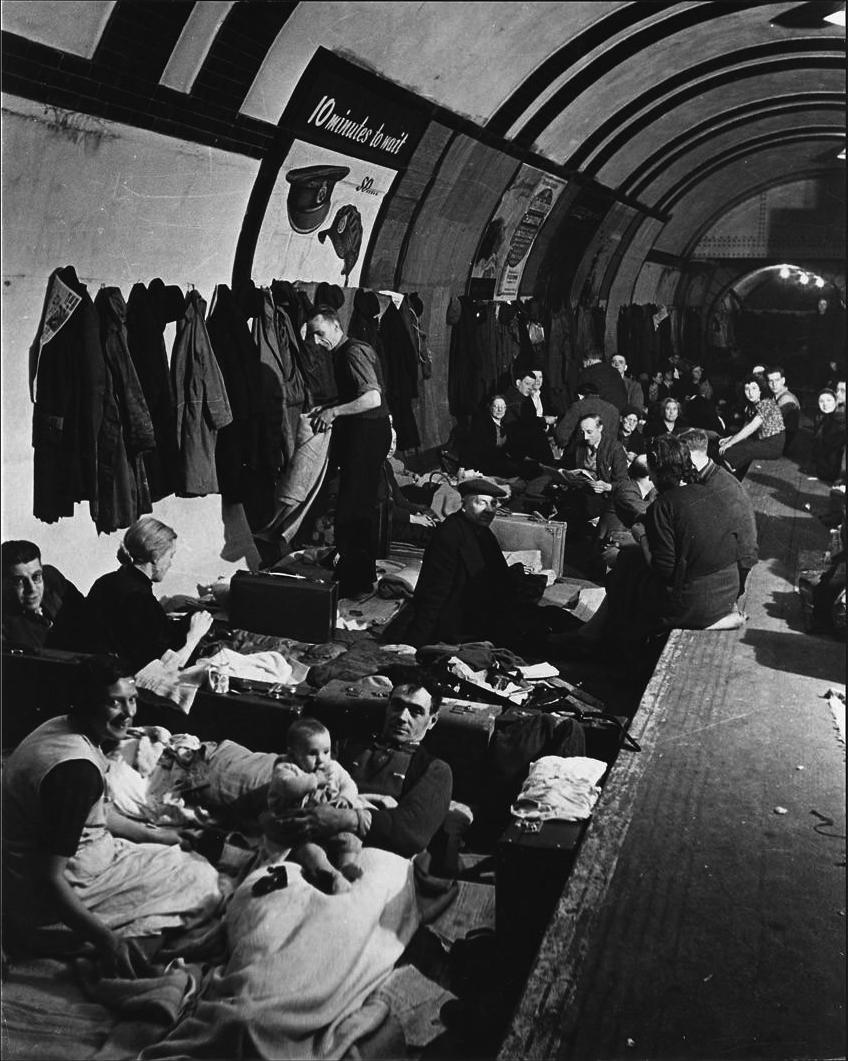
Helen has happy memories of spending nights in Camden tube station, which had been turned into an impromptu hostel. Although she still only a child and on her own, she doesn’t remember finding it frightening:
I had to go through London to visit my auntie so I stayed there every time. There were bunks and mattresses all over the platforms and they turned the entrance hall into a canteen. We all talked the whole time and I was never lonely, not for a moment. Looking back, I remember how brave Londoners were under those dreadful conditions. And we sang all those lovely old tunes like ‘Deep is the night’ and ‘Lili Marlene’.
Despite the trauma and the tragedy, Helen’s abiding memory of that time is how supportive Londoners were:
Looking back, I think how brave the Londoners were. How well they coped with it, in spite of the horror. There was a feeling of togetherness. We all did the best we could and people were kind to each other. It was very evident. I was only 12 but I wasn’t afraid at all. I was excited. It was life.
